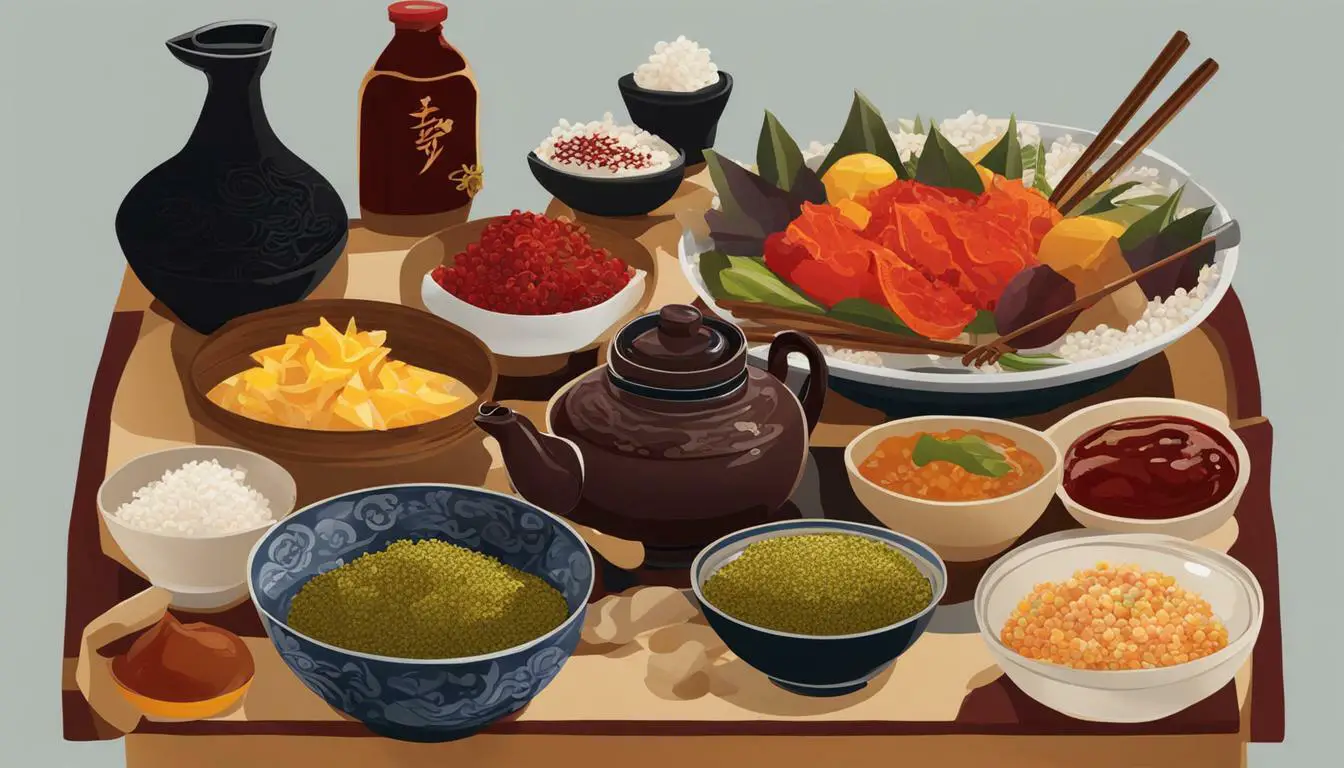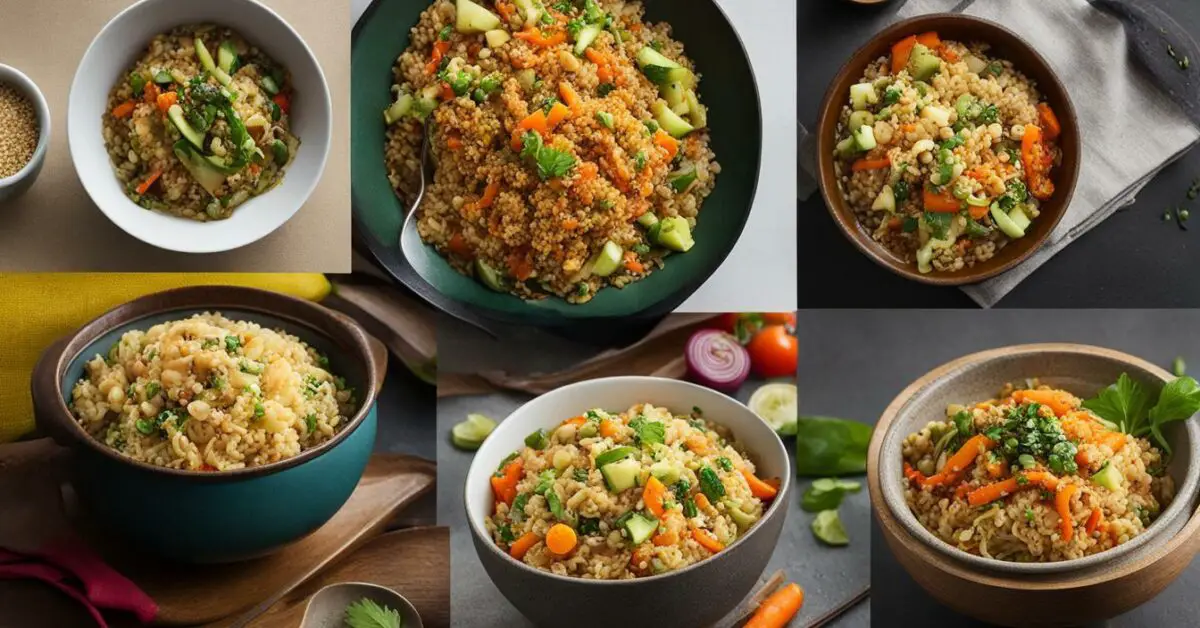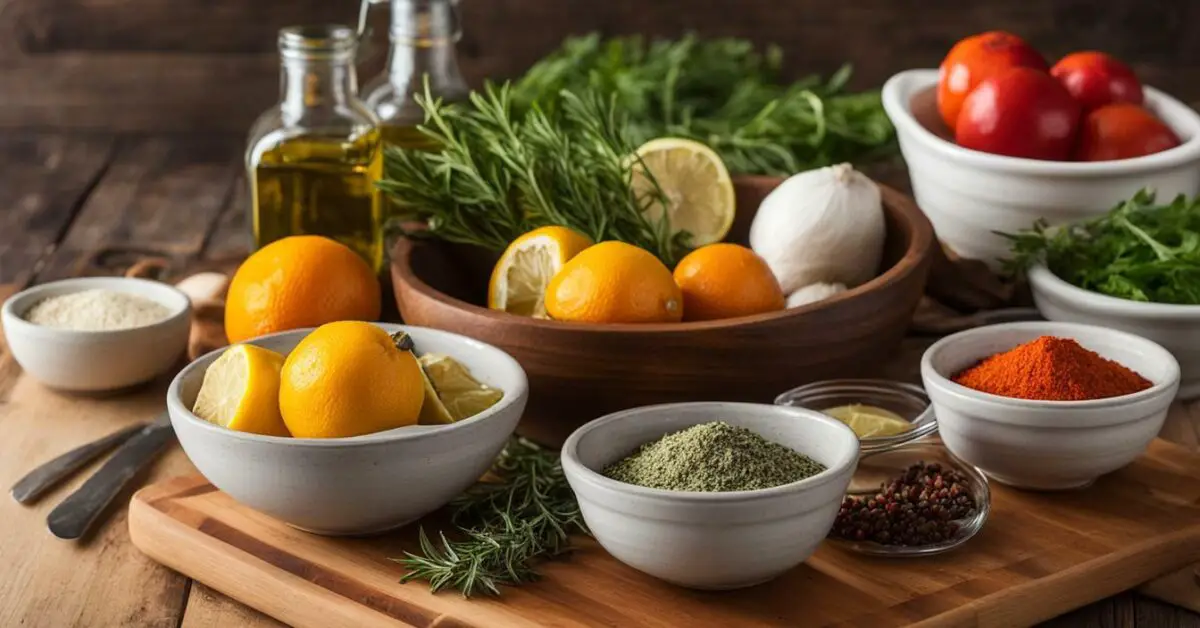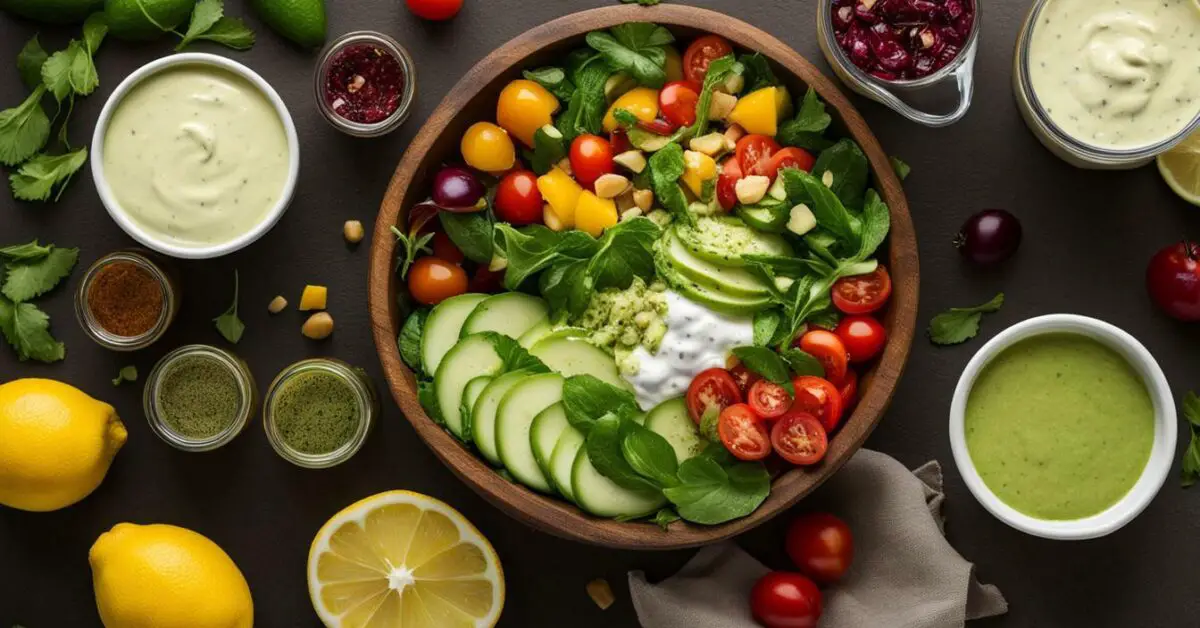
This post may contain affiliate links. Please read my disclosure for more information.
Looking for a substitute for vinegar in Chinese cooking? Discover the top 5 best options to transform your dishes with new flavors.
When it comes to substituting for vinegar in Chinese cooking, there are several options to choose from. Some of the best substitutes include white rice vinegar, red wine vinegar, balsamic vinegar, date vinegar, and malt vinegar. Each of these alternatives offers a unique flavor profile that can enhance a variety of Chinese dishes.
White rice vinegar is commonly used in Asian cuisine and can be found in most grocery stores. Its tangy and slightly sweet taste makes it a versatile choice for a vinegar substitute in Chinese cooking.
For those looking to add depth and complexity to their dishes, red wine vinegar and balsamic vinegar are excellent options. These vinegars provide a rich and unique flavor that can elevate your Chinese recipes to new heights.
If you prefer a sweet and rich taste, date vinegar is the way to go. Its distinctive flavor adds a touch of sweetness to dishes, perfect for balancing out spicy or savory flavors.
On the other hand, malt vinegar offers a strong and slightly smoky taste that can add a unique twist to Chinese dishes. Its bold flavor pairs well with meats and is commonly used in marinades and sauces.
Ultimately, the choice of substitute will depend on your personal preference and the specific recipe you are preparing. Feel free to experiment with these alternatives and unleash new flavors in your Chinese cooking.
White Rice Vinegar – A Staple in Asian Cuisine
White rice vinegar is a staple in Asian cuisine and a versatile substitute for vinegar in Chinese cooking. This mild and slightly sweet vinegar is made from fermented rice and has a tangy flavor that adds depth to dishes. It is commonly used in marinades, dressings, and dipping sauces, as well as for pickling vegetables.
One of the main advantages of using white rice vinegar as a substitute for vinegar in Chinese cooking is its ability to enhance the flavors of other ingredients without overpowering them. It provides a subtle acidity that complements the natural sweetness of many Chinese dishes, making it an excellent choice for stir-fries, noodle dishes, and soups.
To use white rice vinegar as a substitute for vinegar in Chinese cooking, simply replace it in equal amounts. However, keep in mind that the flavor may differ slightly, so it’s a good idea to taste and adjust the seasoning as needed.
Here are some examples of dishes where white rice vinegar can be used:
- Sweet and Sour Pork: The combination of white rice vinegar and sugar creates a deliciously tangy sauce for this classic Chinese dish.
- Hunan Chicken: White rice vinegar adds a subtle acidity and balances the heat in this spicy chicken dish.
- Cucumber Salad: A refreshing salad made with cucumber, white rice vinegar, and sesame oil, perfect as a side dish.
Whether you’re looking to substitute for vinegar in Chinese cooking or simply want to explore new flavors, white rice vinegar is a versatile and delicious option to consider.
Red Wine Vinegar and Balsamic Vinegar – Depth and Complexity
Looking to add depth and complexity to your Chinese dishes? Red wine vinegar and balsamic vinegar are excellent substitutes for vinegar. While both of these vinegars differ in taste and origin, they share the ability to enhance the flavors of your dishes and take them to the next level.
Red Wine Vinegar
Red wine vinegar is made from fermenting red wine, giving it a slightly acidic and fruity taste. It offers a rich flavor profile that complements many Chinese dishes, including stir-fries, marinades, and sauces. The tangy and robust nature of red wine vinegar can help balance out the flavors and bring a subtle sweetness to your recipes. Its deep color and complex undertones add visual appeal and depth to your culinary creations.
Balsamic Vinegar
Known for its unique sweet and tangy flavor, balsamic vinegar adds a distinct touch to Chinese dishes. Originating from Italy, this vinegar is made by reducing grape juice and aging it in wooden barrels. The result is a thick, syrupy vinegar with a complex taste profile that ranges from sweet to tangy, with notes of fruit and caramel. Balsamic vinegar can be used to dress salads, glaze meats, and even drizzle over roasted vegetables, adding a delightful burst of flavor to your Chinese-inspired recipes.
- Red wine vinegar offers a tangy and fruity flavor that complements Chinese stir-fries, marinades, and sauces.
- Balsamic vinegar provides a unique sweet and tangy taste, adding complexity to your dishes.
- Both vinegars can be used to dress salads, glaze meats, and add a burst of flavor to various Chinese-inspired recipes.
When substituting for vinegar in Chinese cooking, consider experimenting with red wine vinegar and balsamic vinegar to enhance your dishes with their depth and complexity. Remember, the choice of vinegar substitute ultimately depends on your personal taste preferences and the specific recipe you are preparing. So, go ahead and elevate your Chinese culinary experiences with these flavorful alternatives!
Date Vinegar and Malt Vinegar – Sweet and Smoky Flavors
Seeking a substitute for vinegar with a unique flavor? Consider date vinegar or malt vinegar for their sweet and smoky flavors. These alternatives offer a delightful twist to traditional Chinese dishes, adding depth and complexity to your culinary creations.
Date vinegar, made from fermented dates, boasts a sweet and rich flavor that adds a touch of natural sweetness to any dish. Its unique taste pairs exceptionally well with savory stir-fries, braised meats, and salad dressings. Whether you’re looking to balance out the flavors or simply explore new taste dimensions, date vinegar is a perfect choice.
On the other hand, malt vinegar offers a distinct smoky taste with a hint of sweetness. Made from malted barley, this vinegar is often used in Chinese cuisine to add a tangy kick to dishes like fish and chips. Its robust flavor can also complement marinades, pickles, and glazes, giving your dishes an extra punch of flavor.
Ways to incorporate date vinegar and malt vinegar in your dishes:
- Add a splash of date vinegar to stir-fried vegetables for a subtly sweet and tangy flavor.
- Marinate pork or chicken in malt vinegar to infuse it with its distinctive smokiness.
- Drizzle date vinegar over fresh fruit salad for a refreshing and unique twist.
- Use malt vinegar as a dipping sauce for dumplings or spring rolls to elevate their taste.
When substituting for vinegar in Chinese cooking, date vinegar and malt vinegar bring a delightful twist to your recipes. Consider experimenting with these sweet and smoky alternatives to discover new flavors and enhance your culinary repertoire.
Conclusion: Choose Your Ideal Substitute for Vinegar
With a variety of substitutes available, you can now choose the ideal substitute for vinegar in Chinese cooking based on your personal preference and recipe requirements. When it comes to substituting for vinegar in Chinese dishes, white rice vinegar is a staple in Asian cuisine. Its tangy and slightly sweet flavor profile adds a delightful taste to stir-fries, sauces, and dressings. You can easily find white rice vinegar in most grocery stores, making it a convenient option for your cooking needs.
In addition to white rice vinegar, red wine vinegar and balsamic vinegar can provide depth and complexity to your Chinese dishes. Red wine vinegar offers a robust and acidic flavor, while balsamic vinegar adds a rich and slightly sweet taste. These vinegars work well in marinades, braised dishes, and glazes, allowing you to explore new flavors and create unique culinary experiences.
If you prefer a sweet and rich flavor, date vinegar is an excellent choice. Its natural sweetness makes it a perfect substitute for vinegar in Chinese desserts and sweet and sour dishes. On the other hand, if you crave a strong and slightly smoky taste, malt vinegar is the way to go. Its distinct flavor complements dishes like fish and chips, giving them an extra kick.
Ultimately, the choice of substitute for vinegar in Chinese cooking depends on your personal taste preferences and the specific recipe you are preparing. Whether you opt for white rice vinegar, red wine vinegar, balsamic vinegar, date vinegar, or malt vinegar, these alternatives will add a unique twist to your dishes and elevate your culinary adventures.
FAQ
What are the best substitutes for vinegar in Chinese cooking?
Some of the best substitutes include white rice vinegar, red wine vinegar, balsamic vinegar, date vinegar, and malt vinegar.
Where can I find white rice vinegar?
White rice vinegar is commonly used in Asian cuisine and can be found in most grocery stores.
How do red wine vinegar and balsamic vinegar enhance Chinese dishes?
Red wine vinegar and balsamic vinegar provide depth and complexity to dishes, adding a unique and rich flavor.
What does date vinegar taste like?
Date vinegar adds a sweet and rich flavor to Chinese dishes.
What does malt vinegar offer?
Malt vinegar offers a strong and slightly smoky taste, which can enhance the flavors of certain Chinese dishes.
How should I choose the ideal substitute for vinegar in Chinese cooking?
The choice of substitute will depend on personal preference and the specific recipe being prepared. It’s recommended to experiment with different substitutes to discover new flavors.


